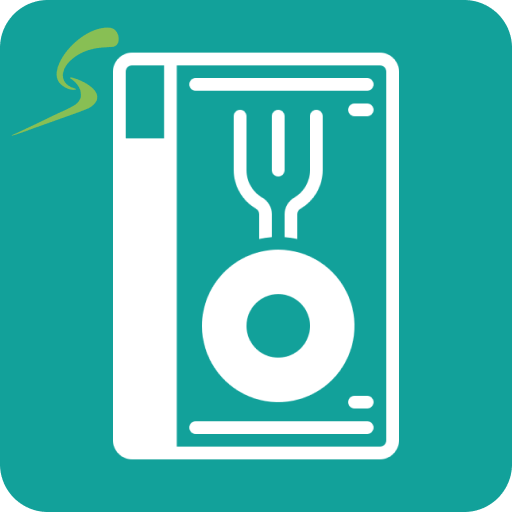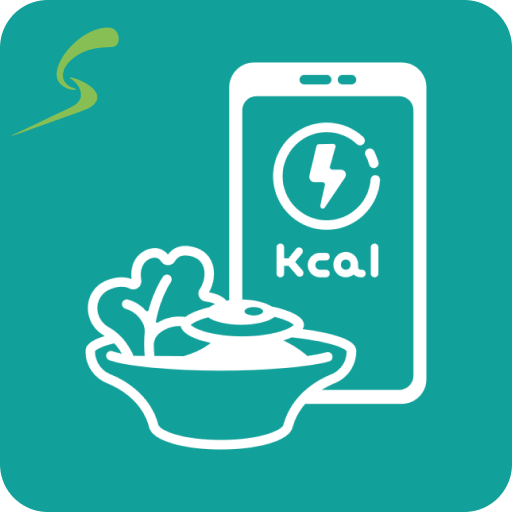Looking for a Dietician for PCOS in Delhi who understands Indian bodies, Indian food, and real-life schedules?
At Nutri Activania, PCOS management is led by Dt. Avni Kaul, an experienced clinical nutritionist specialising in PCOS, hormonal imbalance, insulin resistance, and women’s health.
Our personalised PCOS diet plans help women:

PCOS (Polycystic Ovary Syndrome) is a hormonal-metabolic condition commonly linked to:
Insulin resistance
Hormonal imbalance (high androgens)
Irregular ovulation
According to clinical nutrition science, diet is the most effective long-term management tool for PCOS.
Under the guidance of Dt. Avni Kaul, nutrition is used to:
Stabilise insulin levels
Reduce inflammation
Support ovulation & menstrual regularity
Improve metabolic health
PCOS cannot be “cured,” but it can be effectively managed and reversed symptom-wise with the right diet.

Indian women often experience PCOS dietitians in Delhi differently due to genetics and lifestyle. Common symptoms include:
Irregular or missed periods
Weight gain (especially abdominal fat)
Difficulty losing weight
Acne & oily skin
Excess facial/body hair
Hair thinning or hair fall
Sugar cravings & fatigue
Mood swings & anxiety
Fertility concerns
Treating PCOS with only medication or generic weight-loss diets often fails.
PCOS needs a root-cause nutrition approach.

Individualized PCOS meal plans that are tailored to incorporate Indian dietary preferences while addressing specific nutritional and hormonal needs.

No two PCOS cases are the same. Diet plans are customised based on: Symptoms Weight & metabolism Insulin resistance Lifestyle & work routine Food preferences Fertility goals (if applicable)

Home-style Indian meals Roti, rice, dal — included the right way Easy swaps instead of food elimination

PCOS Dietician in Delhi (Clinic visits) Online PCOS Diet Consultation across India

Consistent support and regular evaluations to track progress and make necessary adjustments to your plan for optimal results.

Guidance on incorporating gradual and sustainable lifestyle modifications that complement dietary changes for long-term health improvements.
Goal: Regular cycles, stable energy, better skin & hair, and long-term PCOS control.


I’m Avni, a Registered Dietician in Delhi and highly qualified clinical dietitian and PCOS specialist based in Delhi. My passion for holistic hormonal health stems from a deeply personal place.
After years of being told by medical professionals that hormonal contraceptives were the only solution for managing my Polycystic Ovary Syndrome (PCOS), I recognized a fundamental gap. I was driven to find an evidence-based way for the body to reclaim its natural function without dependency on medication.
This led me on an intensive journey of research to truly understand the root causes of PCOS, the underlying hormonal imbalances, and the precise lifestyle changes and targeted supplements that could genuinely manage symptoms.
This was an eye-opening process that culminated in a proprietary, evidence-based protocol. Now, I am here to share these hard-won discoveries with you. You deserve the most effective, lasting treatment for your PCOS, one that lifts the burden of symptoms and restores your vitality.

Daily accountability with Diet Journal

Food pictures upload feature for portion check

Daily Follow-up Via WhatsApp

Step Tracking

Daily feedback

Water reminders

Calorie burn tracking

Food compliance report
PCOS Diet Consultation Process
Step 1: Detailed PCOS Assessment
Step 2: Personalised PCOS Diet Plan
Step 3: Ongoing Monitoring & Support
PCOS Success Stories – Nutri Activania



Results vary, but consistency + correct nutrition delivers measurable improvement.
A balanced diet for PCOS focuses on stabilizing blood sugar levels, balancing hormones, and reducing inflammation. Foods rich in fiber, healthy fats, and lean proteins help regulate insulin and manage symptoms. Nutri Activania crafts personalized plans at our PCOS diet program by best Dietician & nutritionist that target your specific symptoms, including weight management, hormonal balance, and insulin resistance.
Highly processed foods, refined carbs, and excess sugar can worsen insulin resistance and inflammation in PCOS. Nutri Activania helps you avoid these foods while providing healthy alternatives like whole grains, lean proteins, and non-starchy vegetables to manage your condition effectively.
Best PCOS Dietician & Nutritionist at Nutri Activania focuses on creating sustainable meal plans that promote healthy weight loss and hormone regulation. By incorporating low glycemic foods, regular meal timing, and balanced portions, we support long-term weight management strategies that align with your health goals.
Yes, reducing carbohydrate intake can improve insulin sensitivity and lower blood sugar levels, which is essential for managing PCOS. Nutri Activania creates low-carb meal plans by expert dietitian tailored to your needs, ensuring you get the right nutrients without compromising your health.
Exercise plays a key role in managing PCOS by improving insulin sensitivity, reducing stress, and promoting weight loss. Nutri Activania’s diet program for PCOS helps you combine a balanced diet with an exercise regimen that aligns with your PCOS management goals, ensuring optimal results.
Our PCOS Nutritionist at Nutri Activania provides expert guidance on supplement use as part of a comprehensive approach to managing PCOS. Supplements like inositol, vitamin D, and omega-3 fatty acids may help manage PCOS symptoms by improving insulin sensitivity and balancing hormones.
A healthy diet can support hormone balance and reduce inflammation, which may help regulate menstrual cycles in women with PCOS. Nutri Activania works with you to create a nutrient-dense diet that promotes hormonal balance and supports regular periods.
Posted onTrustindex verifies that the original source of the review is Google. Really grateful to Avni and the entire team for their guidance and support. The plan was easy to follow, practical, and delivered great results. Highly professional, motivating, and truly caring. I would strongly recommend them to someone looking for real and lasting change.Posted onTrustindex verifies that the original source of the review is Google. Avni approaches nutrition and wellbeing in a genuinely scientific and highly customized way. Her knowledge is impressive, but what truly stands out is the personalized element—it's clearly not a rigid, one-size-fits-all plan. I really appreciate that the process is designed to be flexible and adaptable to individual preferences and lifestyles. Beyond the methodology, the attention to detail and the support system she sets up are exceptional. She ensures the journey of nutritional improvement doesn't feel weary or lonely. Loved the gamification elements which made the process fun while encouraging a focus on sustainable, long-term habits. Would definitely recommend!!Posted onTrustindex verifies that the original source of the review is Google. When looking for someone to help you through your health journey, I think it is very important that the people who are guiding you do not approach it with any judgement. That is one of the best things I find about Avni & her team. They don't make food your enemy but rather teach you how to do it right, spending a lot of time in understanding your likes and dislikes and really personalising it to your need. You can be sure that you are being looked after individually. Alongside that, they also offer is a wealth of knowledge but also a delicate approach towards your journey. This is the main reason why I would recommend Avni to everyone.Posted onTrustindex verifies that the original source of the review is Google. Avni and team are really dedicated, just a call away, and available. Their diet plan is easy to follow and sustainable. Thanks a lot, And wish you the best!Posted onTrustindex verifies that the original source of the review is Google. I really like the services provided by Avni and her team. She and her team make sure that my preferences are accommodated into the diet they provide. They provide a specifically tailored plan that works around my daily routine and helps me achieve overall results. Highly recommend Avni and her services.Posted onTrustindex verifies that the original source of the review is Google. In March 2025, I had a scare with a sudden spike in my sugar levels. That was my wake-up call—I knew it was time to take my health seriously. I wasn’t looking for a quick fix but a long-term, sustainable lifestyle change. That’s when a close friend introduced me to Avni and NutriActivania. I reached out to Avni, and we discussed my goals and what I hoped to achieve. She and her team immediately put together a plan tailored specifically for me. The best part was how flexible it was—no drastic cuts, no extreme measures. Instead, they focused on equipping me with the skills and habits I needed to make lasting lifestyle changes. They listened to what worked for me, especially in terms of food preferences, and built a plan around my life rather than expecting me to adjust to theirs. That level of customization is what made it easy for me to stay committed. Each week, they share a personalised food plan and always check in before finalizing it. Avni has been incredibly supportive—always available to answer questions and consistently encouraging me to stay on track. Over the last seven months, I have lost 9 kgs. My sugar levels are back to normal, my cholesterol has dropped, and most importantly, I feel healthier. I eat better, and I am far more mindful about what I consume. I truly believe they’ve given me the tools to make better choices and have been instrumental in helping me reshape my lifestyle. Thank you, Avni and team. Thank you for being part of my journey and for helping shape it in the best way possible.Posted onTrustindex verifies that the original source of the review is Google. During my first pregnancy, I was worried because I didn’t know how to give proper nutrition to my baby. Someone suggested Nutritionist Avni Kaul, so I joined her program and followed her diet plan throughout my pregnancy. She gave me a healthy meal plan that also allowed me to enjoy the foods I liked. My baby girl was born healthy and at a good weight. After pregnancy, I struggled with my weight, so I joined Avni Kaul’s post-pregnancy weight loss program. My weight went from 65 kg to 56 kg. I truly thank Nutri Activania and Nutritionist Avni Kaul for their support and guidance during my pregnancy and weight loss journey.Posted onTrustindex verifies that the original source of the review is Google. ’ve been consulting Dietician Avni Kaul at Nutriactivania, and I’m genuinely seeing positive changes in myself. Her guidance is very practical, easy to follow, and tailored exactly to my routine. She always checks in, motivates me, and explains everything clearly. My energy levels have improved, my eating habits feel much more balanced, and I’m gradually seeing visible results in my weight and overall health. I really appreciate her support and expertise. Highly recommended!Posted onTrustindex verifies that the original source of the review is Google. I visited Nutritionist Avni after struggling for months with low energy and irregular eating habits. She gave me a diet plan that was flexible, not restrictive, and I started feeling the difference in my energy levels within just a couple of weeks.
Join 300+ Delhi clients” + 5‑star reviews
Join 300+ Delhi clients” + 5‑star reviews